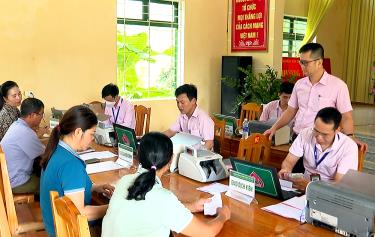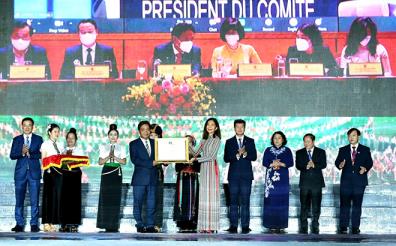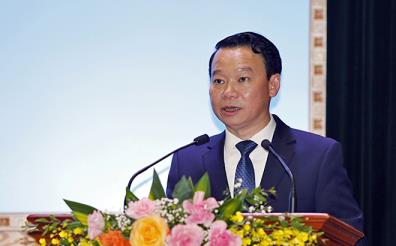OCOP: Elevating Yen Bai’s Agricultural Products
- Monday, February 17, 2025
Each OCOP product is not just a commodity but a symbol of the land and its people, carrying stories of cultural identity, creativity, and aspirations for growth. In Yen Bai, the “One Commune, One Product” (OCOP) program has been a significant driver in establishing local agricultural brands, enhancing value, and conquering both domestic and international markets.

|
|
The Director of the Mu Cang Chai Agricultural Construction and Services Cooperative introduces their natural flower honey product.
|
Other news

As of March 17, Yen Bai province has facilitated the departure of 180 workers for employment abroad, achieving 15.3% of the annual target. These workers are primarily employed in key markets such as South Korea, Japan, and Taiwan. Notably, ethnic minorities and individuals from impoverished households account for 54% of the total. All nine districts in the province have participated in the labor export program.

As of now, the total outstanding loans for the labor export program in Yen Bai province have reached 7 billion VND, an increase of 4.1 billion VND compared to 2023.

In line with the 2025 Yen Bai Province Project to Eradicate Temporary and Dilapidated Housing and in response to the nationwide emulation movement “joining Hands to Eliminate Temporary and Dilapidated Housing in 2025,” the Steering Committee for Housing Support in Mu Cang Chai District has launched a plan to eliminate 771 temporary and dilapidated houses in 2025.

To date, Yen Bai province has had 13 heritages recognized by the Ministry of Culture, Sports, and Tourism as part of the national intangible cultural heritage list.











